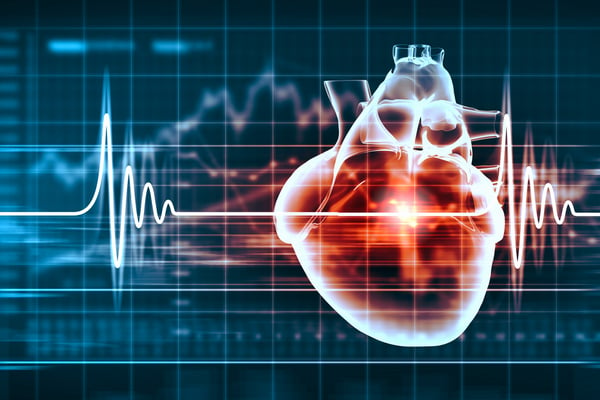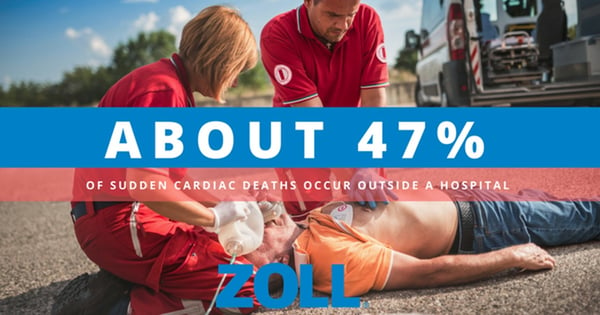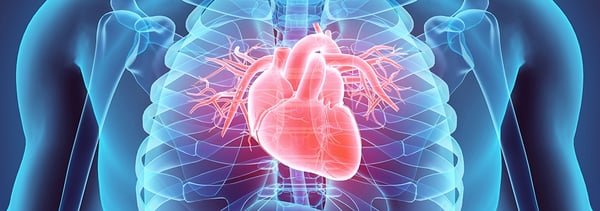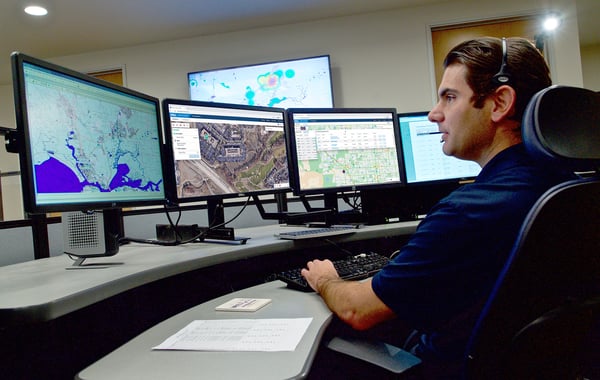Meet the New ZOLL Dispatch and ZOLL Respond CAD Solution
It’s Heart Month: Top-Level Heart Health Tips for Emergency Responders
Help your heart stay in shape with these simple and proactive techniques You work in an industry where you regularly exert both your body and your mind

Help your heart stay in shape with these simple and proactive techniques
You work in an industry where you regularly exert both your body and your mind. The demands of your day-to-day work are intense—and because of them, you could be especially at risk of suffering a heart attack. Most first responders don’t think much of this risk. They know that it comes along with their job—a job that they are endlessly dedicated to doing in order to serve their communities. The good news is, that while we can’t fully eliminate this risk, we can do a few important things to keep our heart health at its best.

STAY PROACTIVE
Protect your heart before there’s ever an issue, and take steps to stay aware of your heart health. Schedule regular screenings to watch for problems, and see a cardiologist as quickly as possible if a problem or concern is discovered. Make a routine out of keeping on top of your heart health. Be committed to thorough, annual physicals—even when you’re feeling top-notch. Ask your physician to regularly evaluate you for any common risk factors of coronary artery disease and to check both the size of your heart and the thickness of its surrounding walls. Being proactive can have a significant impact on preventing the occurrence of heart disease and related illnesses.
CONSIDER THE EARLY SIGNS
Regular heart health checks go hand-in-hand with two other important things: blood pressure and cholesterol level check-ins. High blood pressure is a major risk for stroke and heart disease, among other negative symptoms in the body. High cholesterol can put pressure on your heart because of clogged arteries, causing serious problems as well. The American Heart Association put together these recommendations for monitoring your blood pressure at home. Keeping regular track of your typical “normal numbers” will help you notice a problem faster than your body might indicate one. When monitoring blood pressure from home, it’s important to stay still, refrain from smoking or drinking anything caffeinated 30 minutes prior, and record findings at the same time each and every day. A quick reference to blood pressure numbers shows:
- Normal – anything less than 120 over anything less than 80
- Elevated – anything ranging from 120-129 over anything less than 80
- High – anything ranging from 130-139 over anything ranging from 80-89

EAT SMART
Emergency responders rarely get to just relax. Their lifestyles generally consist of running from one test to the next, and don’t leave a lot of time for obtaining healthy, well-balanced meals. While on-the-go, healthy food choices are becoming more readily available, they can still be difficult to obtain. Meal prep and the health benefits that it can provide will be well worth your time. Try to use the weekends to plan ahead and gather snacks and lunch items that are low in sugar and carbohydrates, farm-fresh or found around the perimeter of the grocery store (away from the “fake food” sections.) In general, avoiding anything that comes in a box or bag with mystery ingredients listed in the nutritional facts is a great idea. Give your diet an extra boost by grabbing (and taking every day) a high-quality multi-vitamin and probiotic. This can help supplement in areas where you may not get enough of important vitamins and nutrients. Trust me—you’ll feel the difference!
GET EXERCISE
You might feel like you’re always running around responding to emergencies—and this is certainly exercise. Unfortunately though, to keep your heart operating at its best, the body needs even more. Find time to squeeze in a little “just because” exercise each day. It goes a long way to battling all sorts of health issues—from mental to physical health. ACE Fitness outlines some first responder fitness tips on their website, and talks about which exercises can not only benefit your body, but make you a better responder, too.

CALL IN BACKUP
You’re more likely to stick to healthy routines and make them a lifestyle if you have other people working on them with you. Pull your crew into some sort of “heart health challenge,” and work on maintaining your ultimate health together. Teamwork makes the dream work, after all.
For more first responder tips and free downloads, visit VFIS’ Safety Central—we offer everything from safety flyers and books to property management tools and administrative logs and forms. To read more blogs like this one, visit our VFIS Passion Project blog, designed by our staff, many of whom are fellow first responders, and meant to help you tackle the risks you face while serving your community.
Related Posts
Collect More Revenue Faster: The Pivotal Role of Clear, Concise, and Complete Documentation
ZOLL Pulse Blog
Subscribe to our blog and receive quality content that makes your job as an EMS & fire, hospital, or AR professional easier.
ZOLL Pulse Blog
Subscribe to our blog and receive quality content that makes your job as an EMS, fire, hospital, or AR professional easier.




